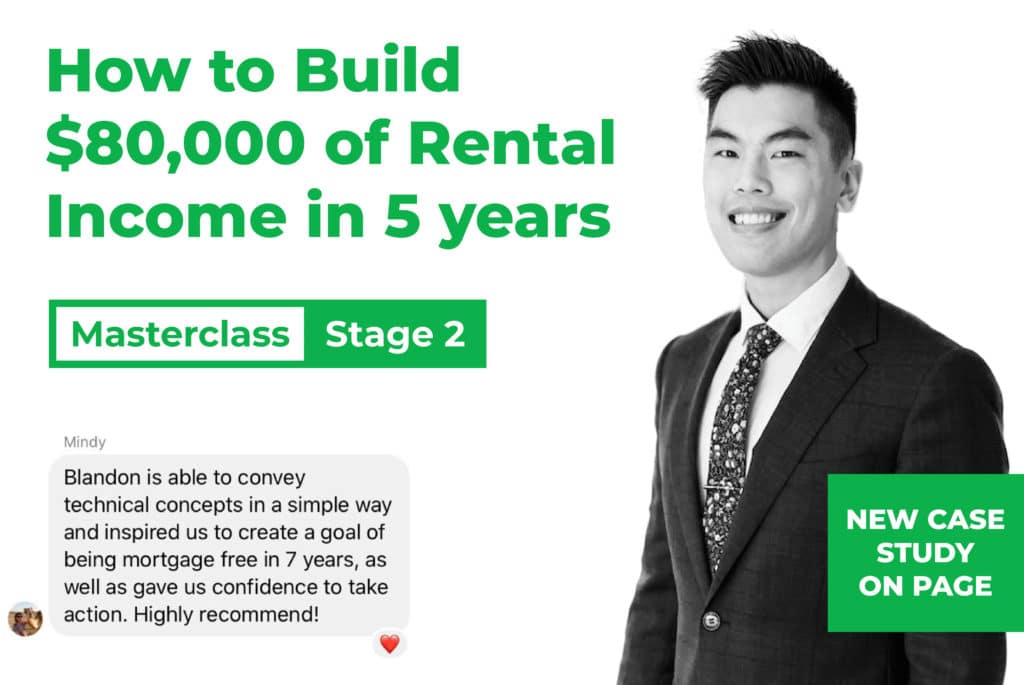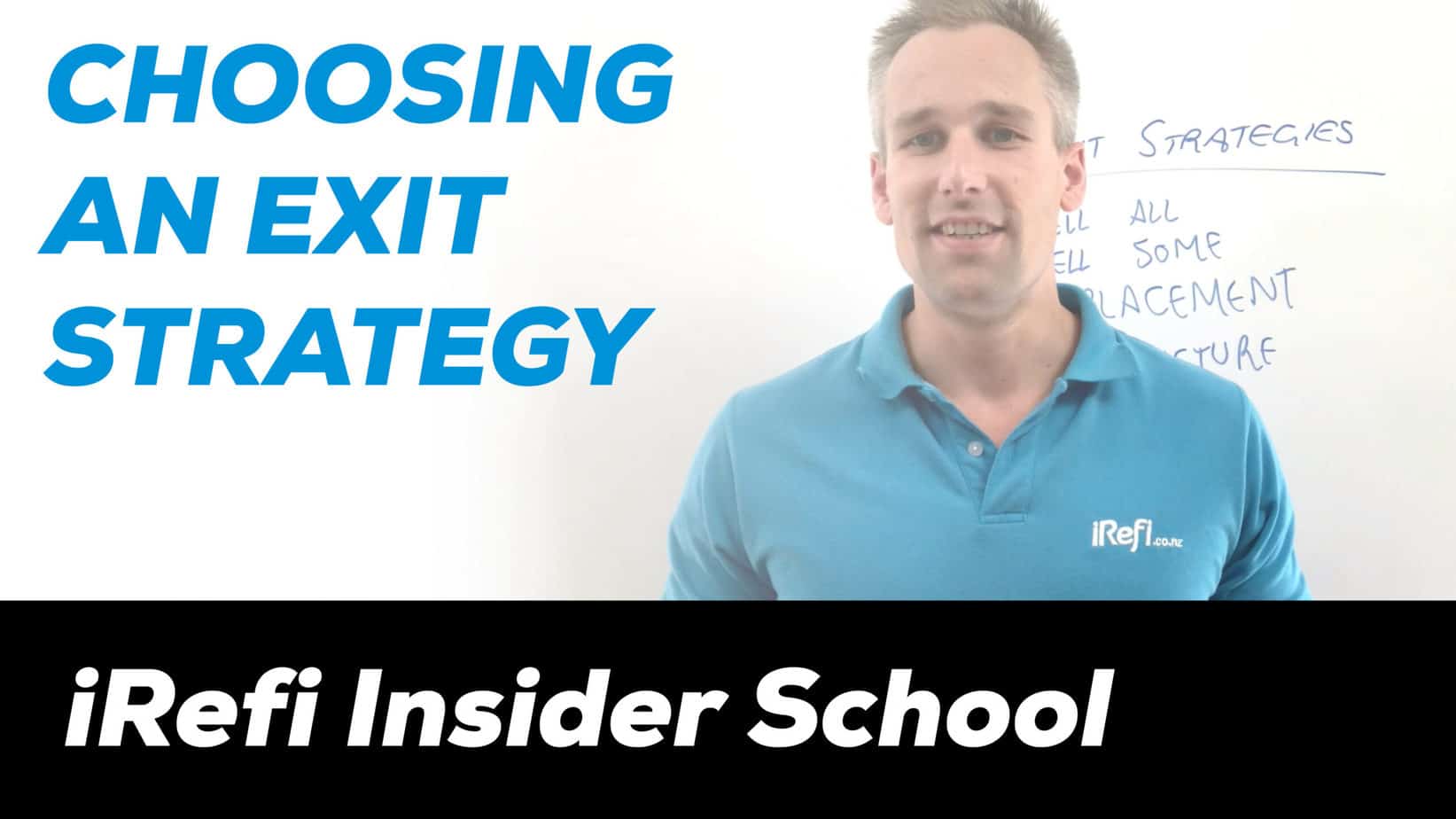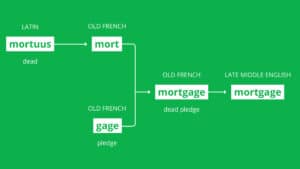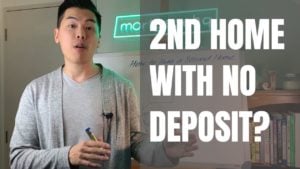Property investors should sell sometimes. You need an exit strategy.
Maybe you’ve been building up your portfolio for 10, 20, 30 years even, and you feel like you’re starting to get some real good traction on building up a base of cash flow producing properties. But what you might still be feeling, even though you’re earning a lot of money is there’s a pinch on your cash flow. Perhaps your property values have increased but your cash flow hasn’t kept up. If your properties have increased in value you potentially have great opportunities to either refinance your mortgage to unlock equity or sell some and trade for yields.
And this might be because your mortgages are not correctly set up and you might not be taking advantage of the bank products that are relatively simple.
You just haven’t got around to it yet. You’re stuck in habits or maybe no one at the bank has educated on what you should and could be doing. And maybe you’re starting to think, “Well, maybe this property game, I’ve got to do something. I’ve got to take action.Maybe I’ve got to sell some of the properties or replace them.” And what you’re starting to realize is there’s more to this than just buying properties and getting mortgages.
Maybe you’ve worked with an advisor or a broker in the past, but where you’re at at the moment is you’re still feeling anxious about your cash flow position, and then what to do next. And so, a lot of people come to us and say, “Hey, I’m going to sell one or some of my properties? What do you guys think about that?” And, you know, the first thing that we say is, “Why sell?” Now, you’ve got to have a really strong reason of why you’re selling a property.
Essentially because you’re selling an asset that’s got a future value much higher than where it’s at today. So, you’re selling an asset at a discount based on its future value. And, if you’re not going to replace it, then what return are you going to get on the cash that you’ve got? So, people come to us and they say, “I’m going to sell my properties, pay down my debts. What do you think about that?”
Generally speaking, unless you’ve got some really good way to invest the money, properties, probably for most people are going to be the safer investment. So, selling properties is not a good idea. And when people are saying, “Hey, I talked to my real estate friend or my accountant, I’m going to sell some of my properties, pay down my debt.” Unless you’ve talked to a mortgage advisor or a registered financial advisor about your plans, and maybe even talked to a few people, selling some of your properties is not the best thing to do unless the bank’s really pressuring you to reduce your debt levels.
And you’ve talked to multiple banks about your options, selling properties incurs a real estate fee and it’s also a period of time where you don’t have that asset that’s accumulating their capital gains and cash flow. So, you know, what you might start to think about is, “Okay, I own a bunch of properties that are…you know, that I’ve been buying old properties, but they’re not cash flowing in the way that I need them to.”
And if you’re starting to move into a period of life, where your income from salary or business is going to go down and you’re going to rely more on your properties, maybe you want to start looking at replacing these properties that don’t cash flow well with cash flow producing properties. And we’re not suggesting apartments, but we might suggest you start looking at properties that they need a bit of work done, you’ve got a bit of extra time that you can do them and you can get the yield up, 8%, 9%, 10% or even more rather than, you know, the Auckland properties that are, you know, 3%, 4% return.
So, maybe a replacement strategy is going to be the one that works for you. But without doing anything with buying or selling any of your properties, what it might just come down to is you need to restructure some of your mortgages and start learning about the offset products, total money, revolving credit products, redrawing facilities.
There’s a lot of things that if you’re not working with a really experienced mortgage advisor that you might not have understood when just working with the bank directly. And you’ve got to understand all of the main banks that you see advertising, they’ve got different kinds of products. And so, before it’s too late, before your income dips significantly because you stopped working or sold your business, you really want to set up maybe a mortgage top-up or an offset account, where you keep hold of your cash.
And what you don’t necessarily want to be doing is paying down your debt as fast as you possibly can because you might not ever be able to get that money back. If you’ve got a bunch of different properties, there’s no reason why you can’t enjoy your life every day because you’ve got the equity and you should be able to manage your cash flow that you shouldn’t feel every week or month that things are tight.
You can go on the holidays. And if you’re disciplined with your money, the revolving credits and the top-ups are a very prudent thing to do, so that you’ve always got that money there. And if you do want to keep buying more properties as the cash flow builds up from your rental portfolio, you want to be putting that cash to the side in offset accounts, so that you can use that money as you see fit.
Now, the last thing that you want if you can avoid it, is when you find a really good property deal that you’re asking permission from the bank to buy it. Basically, you want to be telling the bank, “Hey I bought this property, what mortgage will you allow me to have on it based on the numbers?” And if you’ve got cash, then cash is king in, especially a property investors market where people are being forced to sell and you need to take action quickly.
You don’t want to be calling the bank and them saying, “Yeah, maybe a week or two delay before we can even give you an answer on whether you’re approved or not.” So, understanding the bank products, what you might want to do early, especially if you’ve got more than two or three properties, is that to de-secure some of these properties and reduce the amount of debt level on them. This means that when you go to sell one of the properties, if you do in the future, then you’re maximizing your cash position after that sale.
So, what that means is you might have a 500k property with 300k of debt on it. You sell it, you think you’re going to have 200k of cash, but the bank’s actually going to say, “Well, based on your total debt position and the security we have, we actually want you to repay 500.” So, you’ve just sold a cash-producing asset for 500k and had to repay that 500k.
So, now you’re actually in a worse-off position. So, de-securing, even completely removing security, from that property and getting a freehold so that you can use it as a tool to get more debt later or use it as security for buying more property. So, getting those mortgage top-ups, especially before you get into your 60s, if you can, before the stress testing becomes too tough that the banks are going to say no to mortgage top-ups, you just want to get the bank product facility set up, the top-ups in place.
You don’t need to draw down on them unless you’re going to use them. Some of them you’re only getting charged interest when you actually draw down the money. So, having that facility there is great. And one last little precautionary thing I want to put out there is what we do see is a lot of people are selling their properties. For example, in Auckland, they might sell a $1.2 million property. Then they move down to Tauranga and they buy a 600k place and they think, “Great, now I’ve got 600k.”
The problem with that is you’ve got 600k of cash that you’re probably just going to get 3.6% return term deposit that’s going to get taxed. So basically, you’re not really making any return on your money. And odds are that you’re selling in a flat market. So, the property could fetch instead of $1.2 maybe $1.3, $1.4 mil in a better market. So, Auckland’s a down market, Tauranga’ s an up market.
And what you’re actually doing is selling your property at a discount and buying your next property in Tauranga at a premium, which is 100% complete opposite of what you want to do if you’re a savvy property investor. So, in that case, if you do want to move to Tauranga for that lifestyle, what you might want to do is keep your property in Auckland, rent it out.
Move to Tauranga, rent wherever you’re going to rent, and the return on your cash that’s allocated is going to be much better that way. And you know, you’re going to get capital gains on a $1.2, $1.3, $1.4 million property. And you’re always going to own that property in Auckland versus having the flexibility to move around wherever you want.
Maybe you change your mind about Tauranga and move to Gold Coast or move up north. And so, you don’t want to buy in a heated market and sell in a flat market. That’s basically what I’m trying to get across. And what you’re missing if you have got questions about your cash flow or about what to do next is working with a mortgage advisor. We’re dealing with property investors all day, every day, so we can listen to what your current situation is and throw ideas out there.
And we really will challenge you. We won’t be too worried about hurting people’s feelings if we think that what you’re about to do is wrong. We have that freedom, whereas, at the bank, they’ve got to put on the smile and make sure everybody’s happy. Whereas, we can say what we feel and how we see it and have a constructive conversation about it. So yeah, check out working with a mortgage advisor and consider those extra bank products.













